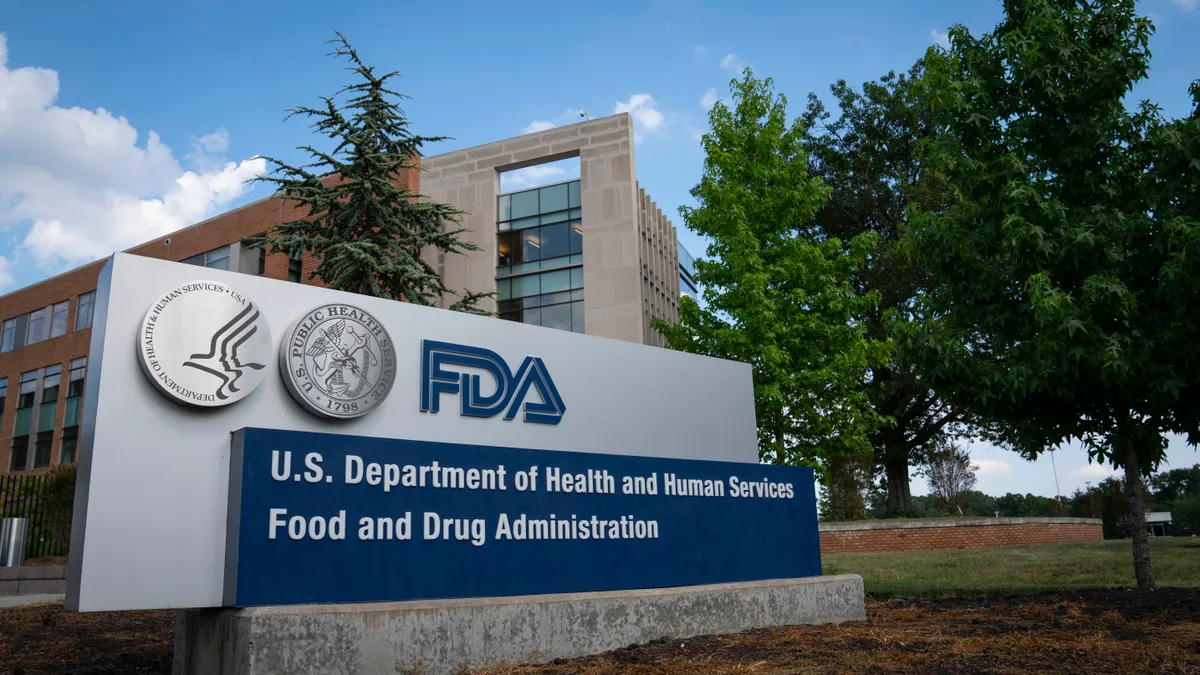UPDATE: June 28, 2022: There have been 1,553 complaints associated with GE Healthcare’s ventilator battery recall, which the company initiated in April, according to a notice this week from the Food and Drug Administration.
In a June 8 emailed statement, GE Healthcare said that there had been no reports of patient injuries.
The recall affects 4,222 devices in the U.S., according to the FDA notice.
GE Healthcare recalled the batteries because they may not provide sufficient backup power, and the ventilators may shut down prematurely, when not connected to the AC main power supply.
Dive Brief:
- The Food and Drug Administration has categorized GE Healthcare’s recall of more than 100,000 ventilator batteries as a Class I event because of their potential to cause the premature shutdown of the device.
- The recall covers certain backup batteries and replacement backup batteries for GE’s Carescape R860 ICU ventilators. Because the batteries may not provide sufficient backup power, the ventilators may shut down prematurely when not connected to the AC main power supply.
- GE Healthcare, which alerted users to the problem in April, is advising sites with the affected batteries to keep their ventilators on main power whenever possible. If it’s “absolutely necessary” to switch to battery power, sites should have a readily accessible means of alternative ventilation, it added. No patient injuries or deaths have been reported due to the issue, GE Healthcare said in an emailed statement. The company added that no devices or parts will need to be retrieved as part of the recall.
Dive Insight:
The letter sent by GE in May described a problem with batteries distributed on or after April 1, 2019. Those batteries may fail earlier than their estimated life and “the alarm that alerts the user on battery run time remaining could potentially be inaccurate,” the company said. A battery that runs out earlier than expected could shut down a ventilator and stop the supply of oxygen to the patient with life-threatening consequences.
At the time of writing the urgent field safety notice, GE had received no reports of injuries as a result of the issue. Still, the potential for the fault to cause serious injuries or death led the FDA to categorize the recall as a Class I event.
The recall includes 29,417 backup batteries for the Carescape R860, and 88,347 replacement backup batteries for the Carescape R860, Engström Carestation and Engström PRO.
According to the company, in 10 cases the Carescape R860 ventilator shut down due to the issue while being used on backup batteries, but in every case, alternative means of ventilation were used and there were no reports of patient harm.
GE wants sites with batteries covered by the recall to conduct a performance test. The test entails fully charging the batteries by connecting the ventilator to the main power source for at least eight hours. Once charged, the user should connect a patient circuit and test lung to the ventilator, set the parameters chosen by GE, start ventilation and disconnect the power cord from the mains. If the batteries power the ventilator for 60 minutes or longer, they have sufficient charge, according to the company.
Sites with batteries that fail before 60 minutes should contact their authorized service representative to obtain replacements, GE added. The company is asking sites to record the time to shut down on the form it will provide. GE asks that sites run the battery performance test every three months. If a battery is in storage for more than three months, the site should run the test before using the device, it said, adding that backup batteries should be replaced at least every three years.
Correction: A previous version of this article cited a recall notice from the U.S. Food and Drug Administration.The FDA subsequently revised its advisory to state that no injuries or deaths have been “associated with the use of this device.”











